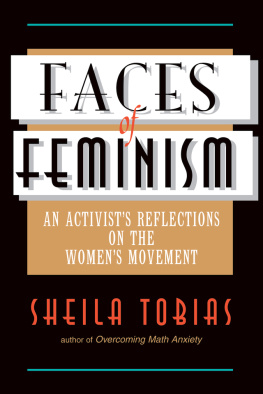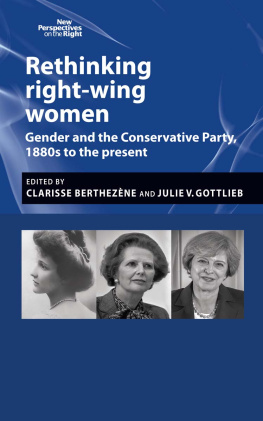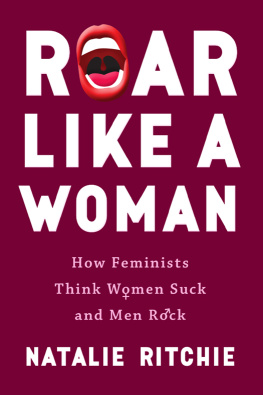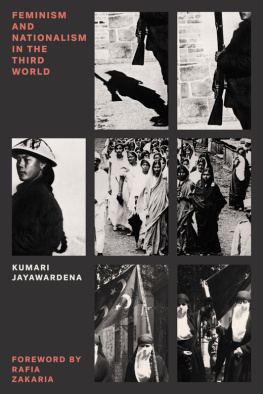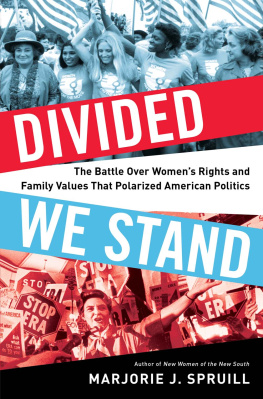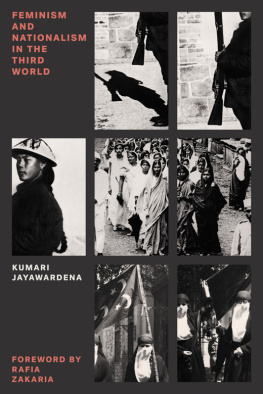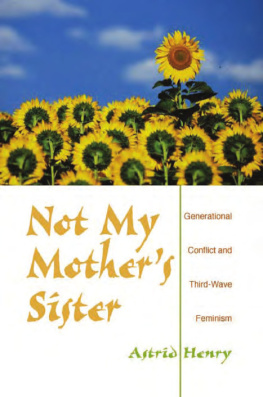2018 by the Board of Trustees
of the University of Illinois
All rights reserved
Library of Congress Cataloging-in-Publication Data
Names: Kempker, Erin M., 1978 author.
Title: Big sister: feminism, conservatism, and conspiracy in the heartland / Erin M. Kempker.
Description: Urbana: University of Illinois Press, 2018. | Includes bibliographical references and index.
Identifiers: LCCN 2018011128| ISBN 9780252041976 (cloth : alk. paper) | ISBN 9780252083662 (pbk. : alk. paper)
Subjects: LCSH: FeminismIndianaHistory20th century. | FeminismUnited StatesHistory20th century. | Womens rightsIndianaHistory20th century. | ConservatismIndianaHistory20th century.
Classification: LCC HQ1438.I6 K46 2018 | DDC 305.4209772/0904dc23
LC record available at https://lccn.loc.gov/2018011128
Ebook ISBN: 978-0-252-05070-1
Cover illustration: Elena Kulikova/Getty Images
For
Martha Swain and Mildred Mickie Brandt Mebruer
Acknowledgments
THIS BOOK HAS TAKEN SUCH a long road to completion, and I have met so many wonderful, supportive people on the way. Like many other books, this one started out to tell a very different story. Initially my interest was strictly midwestern feminism and then strictly female conservatism, but I found that I simply could not understand either feminists or conservatives as they developed in Indiana without studying both and the nested nature of each sides political identity and consciousness. Only by researching both sides could I explain what happened when the two sides confronted one another over the meaning of feminism.
The book has undergone many transformations. Throughout its different iterations, I found women willing to share their time and memories with me. On the feminist side, thank you Betty Nelson, Barbara Cook, and Dorothy Mennen, along with members of the Indiana Womens History Association, including Beth Van Vorst Gray, Marianne S. Wokeck, Jill Chambers, and Mary Anne Butters, who graciously invited me to their meetings and volunteered helpful ideas and suggestions for my dissertation. My heartfelt thanks to the many conservative women who talked to me about their work in anti-ERA and anti-IWY politics, including Phyllis Schlafly, Joan Gubbins, Joanne Reynolds, Beulah Coughenour, Jan Conner Wahls, Pat Schneider, and Kathryn Nikou. You let me into your homes and trusted me to listen to you and speak to your experiences. I hope you are pleased with the book and find truth in its argument about conspiracism It is worth the risk, but more than anything I would hate to disappoint you.
Teaching a heavy load did not make completing this book easy, but I had many wonderful colleagues and students who spurred me on and an editor who was always patient. At different times Brian Anderson, Bridget Pieschel, Tom Richardson, Amber Handy, Beverly Joyce, Kristi DiClemente, and Nora Corrigan provided support and encouragement that helped me refocus my attention and return, again, to research and writing. My sincere thanks to the entire Mississippi University of Women community, especially the students in my Women in American History classes, who shared openly their thoughts and perspectives on womens politics throughout the twentieth century, and the Faculty Research Committee for grants that provided financial support for the project. My editor, Dawn Durante, offered me patient support and guidance at every crossroad. In connecting to a community of scholars while maintaining a busy teaching schedule, I prioritized reading and journal publication over conferences, and this often left me feeling isolated from the larger field of womens historians. Without the ongoing support of Martha Swain, Melissa Estes Blair, and Janet Allured, who reached out to me and pulled me into whatever they were doing, I would have been even more isolated.
My deep thanks to Donald Critchlow. When I was at my wits end sorting through potential directions for the project, he helped me find my footing and gave my work a truly insightful and critical readone that made all the difference. I also thank him for the introduction to Phyllis Schlafly and his substantial help at the Eagle Forum Archives.
Historians are dependent on the archival and library faculty and staff who make their research possible. I am so thankful for the assistance of archivists and librarians at the Indiana Historical Society (IHS), the Kenneth Spencer Research Library at the University of Kansas, and the John Hay Library at Brown University. Their professionalism and warm, friendly manner were always appreciated. I extend heartfelt thanks particularly to Amy Belcher for help with the Womens Manuscript Collection at the IHS. Perhaps there never was a historian more lucky than me in that two of my dearest friends, Sara Morris and Amanda Clay Powers, are remarkably dedicated and brilliant academic librarians. Whatever I asked for, even if the university was closed or if I lost all citation information, they found for me, even sending me sources I did not know to ask for.
I am very grateful to both journals for allowing me to share the material here.
My sincere thanks to my friends and family in central Missouri, West Lafayette, Indiana, and Columbus, Mississippi, who supported me and this project, never asking why it was taking so long. Sara Morris, Megan Birk, Christina Abreu, and Eric Hall stuck with me through all the hardships of finding the first job and surviving the first few years. Calls on Saturday morning provided a link between our supportive world as graduate students together and my new world as an assistant professor. When I moved to Mississippi, Amanda Clay Powers and Kris Lee helped me adjust to my new home and over the years have continued to help me connect to a community of supportive people, including Shalyn Clagget and Alicia Hall. My sincere thanks to Susan and Alan Smith and Susan Hester for welcoming me into their families and helping whenever a research trip necessitated time away from home. Special thanks, too, to Jan DeBlieu and Jeff Smith DeBlieu, whose personal interest in me and this project was deeply appreciated.
Through it all and without question or hesitation, my family has supported me. To my parents, Deborah Mebruer Kempker and Leonard Franklin Kempker, words cannot express my gratitude for your support throughout the years, but especially for showing me by your example how daily work can be an anchor in life and how work, regardless of whether it is pleasant, can provide the foothold that allows you to help push others forward. As this book comes to a close, I frequently think of my maternal grandmother, Mickie Mebruer, who was not allowed to attend high school because of her familys strange notion of fairness. She was the youngest of nine, and although circumstances had changed, since her parents had not been able to send her siblings to high school, she could not go either. From her life to mine in two generations speaks volumes about the wide difference in twentieth-century womens experiences and opportunities. She would be so pleased with this book, as will my grandfather Clarence Mebruer, who shares with me a love of history. More than I can say, I am grateful for my sisters, Emily Short, Tracy Wunderlich, and Megan Boehmer, and their families. What a drab space my office would be without the cat drawings, colorings, and hand-made portraits of my nieces and nephews. Everywhere I work, love is all around.


